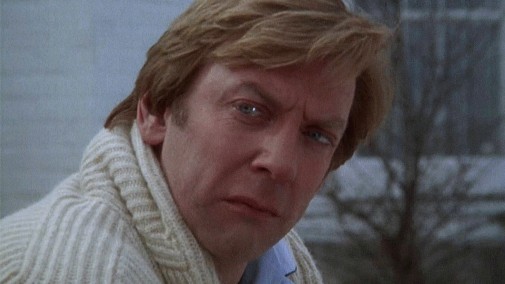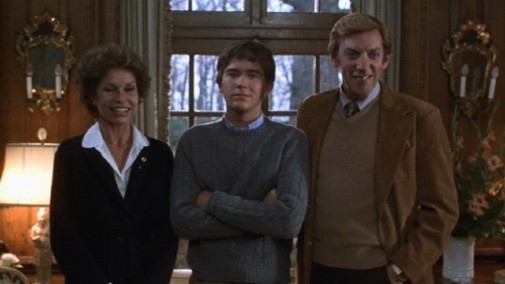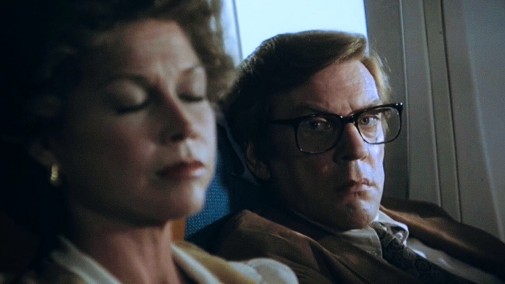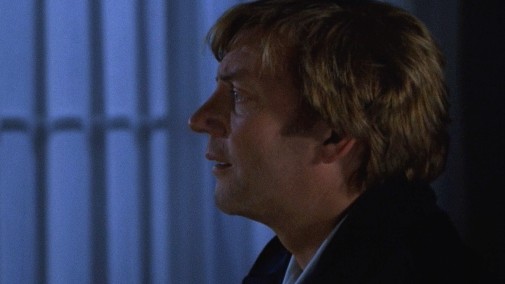
Donald Sutherland is one of those actors who seem to be Oscar nominees even if they're not. Like Mia Farrow or John Goodman, Sutherland has been in so many awarded productions that he feels like the sort of person who should have the words "Academy Award nominee" appear before his name in trailers. He's almost an institution of American Cinema, his filmography full of historically important titles such as MASH and Klute. To think such a respected actor is still without an Oscar nomination is slightly inconceivable, but the lack of accolades never shocked Donald Sutherland himself.
In 1980, he was the only main actor of Best Picture-winner Ordinary People to be ignored by the Academy. When asked about the snub, he said: "I'm not surprised. I know that community and I didn't expect a nomination." That doesn't mean he didn't deserve one…

Because of its fearsome competition, Robert Redford's Ordinary People is usually considered among the great robberies in Oscar history. Some of that outrage is understandable when we remember it won best Picture against Martin Scorsese's Raging Bull and David Lynch's The Elephant Man. However, it would be unfair to say this drama about grief is a terrible winner. In the subgenre of suburban tragedies starring upper-class families, it's is certainly better than another Best Picture winner in the same mold. In any case, it's not a perfect masterpiece.
The direction is somewhat heavy-handed when it comes to the use of music and overt symbolism, its views on depression and psychotherapy are a bit schematic. What it has going for it is an uncomfortable level of emotional brutality that never seems inauthentic, not even when the script breaks some metaphorical plates and has characters comment on it. There's also the fact that Redford is a formidable director of actors, giving them leeway to contradict the written characterizations and explore contrasting registers that still feel cohesive.

As Conrad Jarrett, Timothy Hutton gives an Oscar-winning performance of inchoate despair. The suicidal teen who lost his older brother in a boating accident is a live wire in human form, as prone to petrifying blankness as he is to explosions of mean-spirited provocation. Mary Tyler Moore plays his cold mother, a woman ravaged by loss who, like Conrad, unconsciously chooses to feel nothing instead of dealing with the pain of her son's death. Though, unlike him, her emptiness manifests as pathologic aloofness. The actress received a well-deserved Oscar nomination for her troubles.
If Hutton is fire and Moore is ice, Sutherland plays an undefined ever-mutable element trying to keep the peace between the two warring titans. He is Calvin Jarrett, the patriarch and unwilling mediator, a man who deals with loss by pretending everything is fine and trying to return to the normalcy of pre-tragedy life. His efforts are void, of course, for grief is a cancer for which there is little treatment. During endless dinner scenes, we see how this father tries to fill the silence with inane conversation, getting little feedback from his companions, though his eyes keep jumping from son to wife in hopes of getting a reaction.

When Conrad laughs at a bad joke Calvin muttered, it's like a miracle and it's difficult not to feel heartbroken at how happy Sutherland looks for a single instant. This is a performance made of such moments, little flashes of ravaged humanity. Look at the way his stony gaze makes an airplane travel look like the funeral procession for a dead marriage or how he acts like a soldier walking through a minefield whenever he's alone talking to Conrad. The approach to this character couldn't be more fitting for the film he's in since Ordinary People is a drama where we learn more from what the characters refuse to say than from what they verbalize, more from what they hide than from what they show.
Sutherland paints us a picture of lost familial happiness by trying to cover the scars of domestic apocalypse, he telegraphs the ineffectiveness of these attempts, underlines the futility of Calvin's agonizing struggle. His arc in this story is the admittance of failure, the acceptance that he can't cope, that he's angry and sad, that he's lost. In a way, it's easy to understand his lack of Oscar nomination. Calvin Jarrett is a role that needs to be purposefully underplayed in order to work. His only big scenes, which come late in the narrative, are all about Calvin explaining away his family, those he understands better than anyone. First to a psychiatrist, then to his wife and finally to his son. Through these quasi-soliloquies, Sutherland appears to do very little, though his accomplishment is monumental, saying a lot with minimal fanfare.

For example, it's easy to imagine the conversation with his spouse coming off as antagonistic, but Sutherland swallows his words. He's not saying she's a monster, he's rationalizing the feelings that aren't there, the void left by tragedy and the frailty of their union. He doesn't play it as an attack towards her but as a declaration of defeat. Because of that, there's no triumph at the end of the film, simply a sight full of ragged pain and a sobbed promise of parental love. Ordinary People isn't about a horrible mother needing to be excised from the family. It's about traumatized people needing to say out loud that they're in pain and they need help, that they can't do it alone.